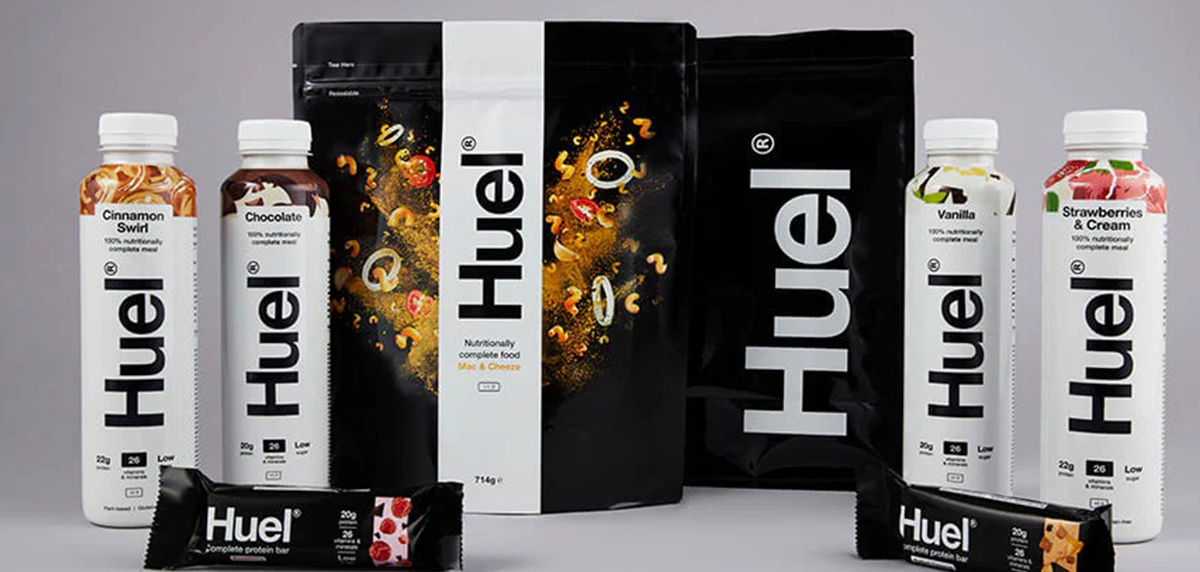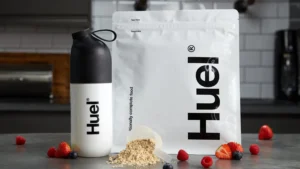
Huel: Is It the Ultimate Nutrition Hack? A Comprehensive Review
When you think of meal replacements, what comes to mind? Bland, unappetizing powders or shakes that leave you hungry an hour later? Well, Huel is here to change that perception. The brand has built a cult-like following of “Hueligans” thanks to its nutritionally complete, plant-based meal solutions. Whether you’re looking for powder, bars, or ready-to-drink options, Huel offers convenience without sacrificing health. But is it worth all the hype? Let’s dive into the pros, cons, and comparisons to other brands so you can decide if Huel is the right fit for you.
What Exactly is Huel?
Huel (short for “Human Fuel”) is a food brand offering a range of nutritionally complete meals in various forms—powders, ready-to-drink (RTD) shakes, and bars. Every product is designed to deliver all the essential nutrients your body needs, including carbohydrates, fats, proteins, vitamins, and minerals. It’s 100% vegan, made from whole-food ingredients like oats, flaxseed, and coconut, and it’s a popular option for those who want to eat healthily but lack the time to prepare meals.
Huel at a glance:
- 100% plant-based and vegan
- Nutritionally complete with 27 essential vitamins and minerals
- High in protein (20g per serving)
- Sustainably sourced ingredients
- Available in multiple formats (powder, RTD shakes, bars)
Key Benefits of Huel
Nutritional Perfection (Well, Almost)
Huel markets itself as being nutritionally complete. That means each serving contains a perfect balance of macronutrients—carbs, fats, and proteins—along with all the vitamins and minerals you need. It’s a relief for anyone tired of trying to balance their diet or constantly meal prepping. The high protein content (20g in each meal) also appeals to gym-goers or anyone looking to maintain or build muscle.
Convenience: No More Meal Prep
One of the biggest perks of Huel is the convenience factor. Preparing a complete, balanced meal with a scoop of powder or a ready-to-drink shake takes mere seconds. No chopping vegetables or dirty dishes. Whether you’re working long hours or traveling, Huel keeps you fueled up.
Sustainable and Ethical
Huel is committed to sustainability, using 100% vegan ingredients and reducing its environmental impact. From the packaging to the ingredients, the brand focuses on being as eco-friendly as possible. Additionally, their focus on plant-based ingredients ensures that your diet aligns with a low-carbon lifestyle.
Cost-Effective
At approximately $2 per meal (if you buy the powder in bulk), Huel is far more cost-effective than most takeout options. Even their RTD shakes come in at around $3, which is much cheaper than the average sandwich or salad. Huel makes it affordable to maintain a healthy diet on a budget.
The Flipside: Potential Drawbacks of Huel
Taste: Hit or Miss
One area where Huel gets mixed reviews is taste. While many users appreciate the neutral flavors of their powders, others find them bland. The taste can vary depending on the product you choose. For instance, the ready-to-drink versions are smoother and often better received than the powder, which some people find a bit chalky. The flavor variety, like chocolate, vanilla, and coffee, helps, but it might take some getting used to.
Texture Could Be Improved
Depending on how you prepare it, Huel’s powder can end up a little gritty. This is especially true if you’re used to smooth, creamy protein shakes. While a blender solves the problem, it’s not always practical on the go. The RTD version, on the other hand, is much smoother and convenient, though it comes at a slightly higher price point.
May Not Suit Everyone’s Digestion
As with any fiber-rich product, Huel can cause digestive issues for some, particularly when you first introduce it into your diet. Some users report bloating or an upset stomach, likely due to the high fiber content. However, this can often be mitigated by starting with smaller portions and gradually increasing the serving size.
Huel vs. Competitors
Huel isn’t the only game in town when it comes to meal replacements. Here’s how it stacks up against some of its major competitors:
| Caraterística | Huel | Soylent | Jimmy Joy | Ample |
|---|---|---|---|---|
| Price per meal | ~$2 (powder), $3 (RTD) | ~$3 (RTD) | ~$1.75 (powder) | ~$5 (RTD) |
| Calories per meal | 400 | 400 | 400 | 400 |
| Protein per meal | 20g | 20g | 20g | 25g |
| Vegan | Yes | Some products are vegan | Yes | No |
| Sustainability Focus | High | Moderate | Moderate | Low |
| Taste and Texture | Variable (depends on product) | More neutral | Sweeter, smoother | Creamy and thick |
Soylent: Similar but Simpler
Soylent is probably Huel’s closest competitor. Both brands aim to offer nutritionally complete meals, but Soylent tends to be a bit more simplified in its approach. It also tends to have a smoother texture and a more neutral flavor, which some may prefer over Huel’s oatier taste. However, Soylent doesn’t have as many high-fiber, whole-food ingredients as Huel, so if you’re looking for more natural nutrition, Huel wins.
Jimmy Joy: Lighter on the Wallet
Jimmy Joy is another popular choice, especially in Europe. It’s less expensive than Huel and offers a similar macronutrient balance. However, it leans a bit sweeter in taste, which some people prefer. Jimmy Joy may not have the same focus on whole-food ingredients, but it’s still a solid competitor in the budget meal replacement space.
Ample: The Premium Option
Ample is like the luxury car of meal replacements—it’s pricier but offers high-quality ingredients and a thicker, creamier texture. However, it’s not vegan, and the price per meal can get as high as $5. If you’re looking for something a little more indulgent, Ample might be worth a try, but Huel offers better value for money.
Pros and Cons of Huel
Prós:
- Balanced Nutrition: Each meal covers all your macro and micronutrients.
- Convenient: Quick and easy to prepare, no cooking necessary.
- Plant-based and Vegan: Perfect for those on a vegan diet.
- Sustainability: Focused on eco-friendly practices.
- Cost-Effective: Cheaper than most meal delivery or restaurant meals.
Contras:
- Taste: Some find the flavors too bland or “earthy.”
- Texture: The powder can be gritty if not blended well.
- Digestive Concerns: High fiber content might cause bloating initially.
Who is Huel For?
Huel is perfect for anyone who needs a quick, nutritious meal without the hassle. Whether you’re a busy professional, a gym-goer in need of protein, or someone looking to lose weight without sacrificing nutrition, Huel fits the bill. It’s also a fantastic option for those who care about sustainability and want to reduce their environmental impact with a plant-based diet.
However, if you’re someone who loves the ritual of cooking or is very particular about taste and texture, you might need to experiment with Huel to see if it fits your palate.
Final Thoughts: Is Huel Worth It?
In a world where convenience often means compromising on health, Huel stands out as a great middle ground. It’s nutritionally sound, affordable, and convenient, all while being eco-friendly. If you’re looking to simplify your diet without skimping on essential nutrients, Huel is definitely worth a try. Just keep in mind that taste is subjective, and it may take some time to find the perfect flavor for you.































